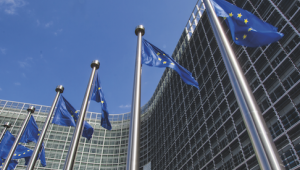Experts from the Kenya Revenue Authority are set to start providing technical assistance to officials from the Botswana Unified Revenue Service from early next year.
Botswana is home to a number of profitable export industries, such as diamond production and copper mining, but doesn’t capitalise on these in tax terms. Its corporate tax rates are low, and its capacities to collect what it does demand are limited.
It is the first example of a south-south pact established under the TIWB programme, which was established by the OECD and United Nations Development Programme to curb widespread tax avoidance by multinationals in developing countries.
OECD secretary general Angel Gurría highlighted that the challenges of building fair and efficient tax systems that can deliver the resources needed to achieve the Sustainable Development Goals are “bigger than any one organisation”.
Estimated to cost as much as $1tn a year to receive, the SDGs can’t be met with aid from donor governments alone. Domestic tax revenues and the private sector are expected to have to play key roles.
TIWB deploys qualified tax experts to countries that request assistance with ongoing audits of multinational companies. It focuses on improving revenue recovery and improving local audit capacity.
Eight pilot projects across Asia, Latin America and Africa have generated more than $260m in additional tax revenues to date, including more than $100m through TIWB audits in Zimbabwe alone.
But research from PwC, published today, noted that the region remains one of the most difficult when it comes to businesses who do try and pay their taxes.
The continent has the highest average number of payments, at 37, and it takes businesses in the region the second longest time to comply – 307 hours.
This marks a reduction of seven hours compared to 2014, which PwC attributed to the increased use and improvement of electronic systems and other administrative changes, including upgraded accounting software and simplified returns.
However, PwC said reducing compliance time further is the key area where Africa could make improvements to its business tax regime.













